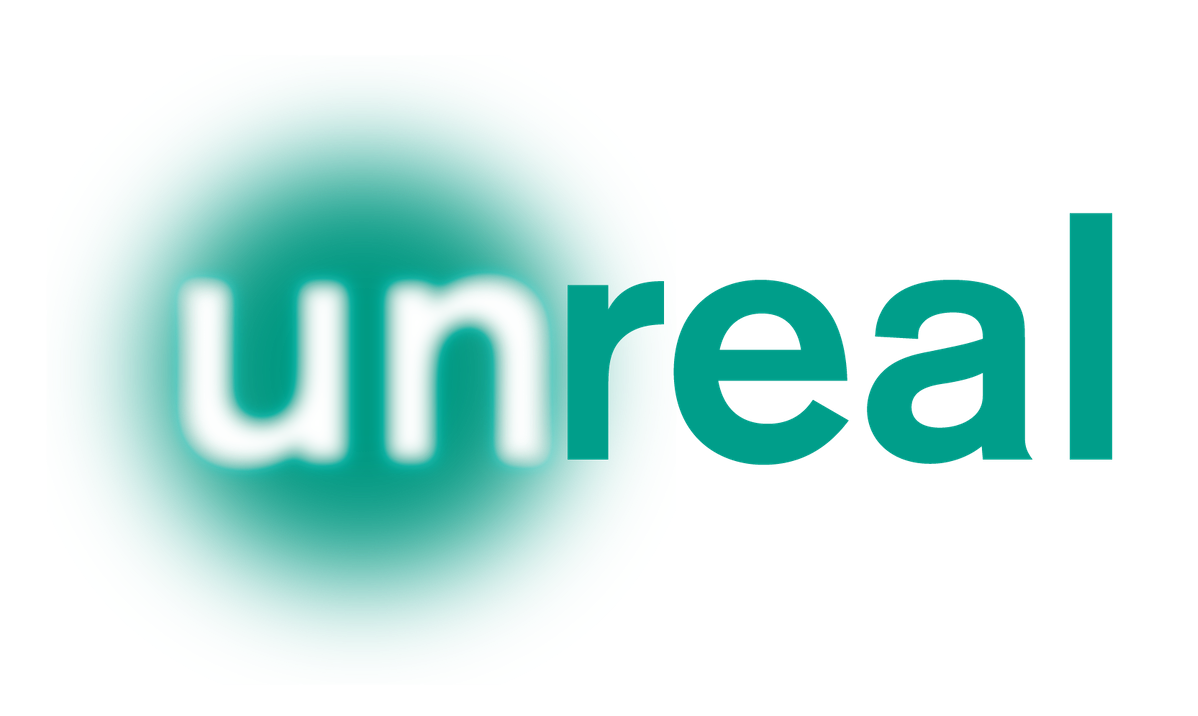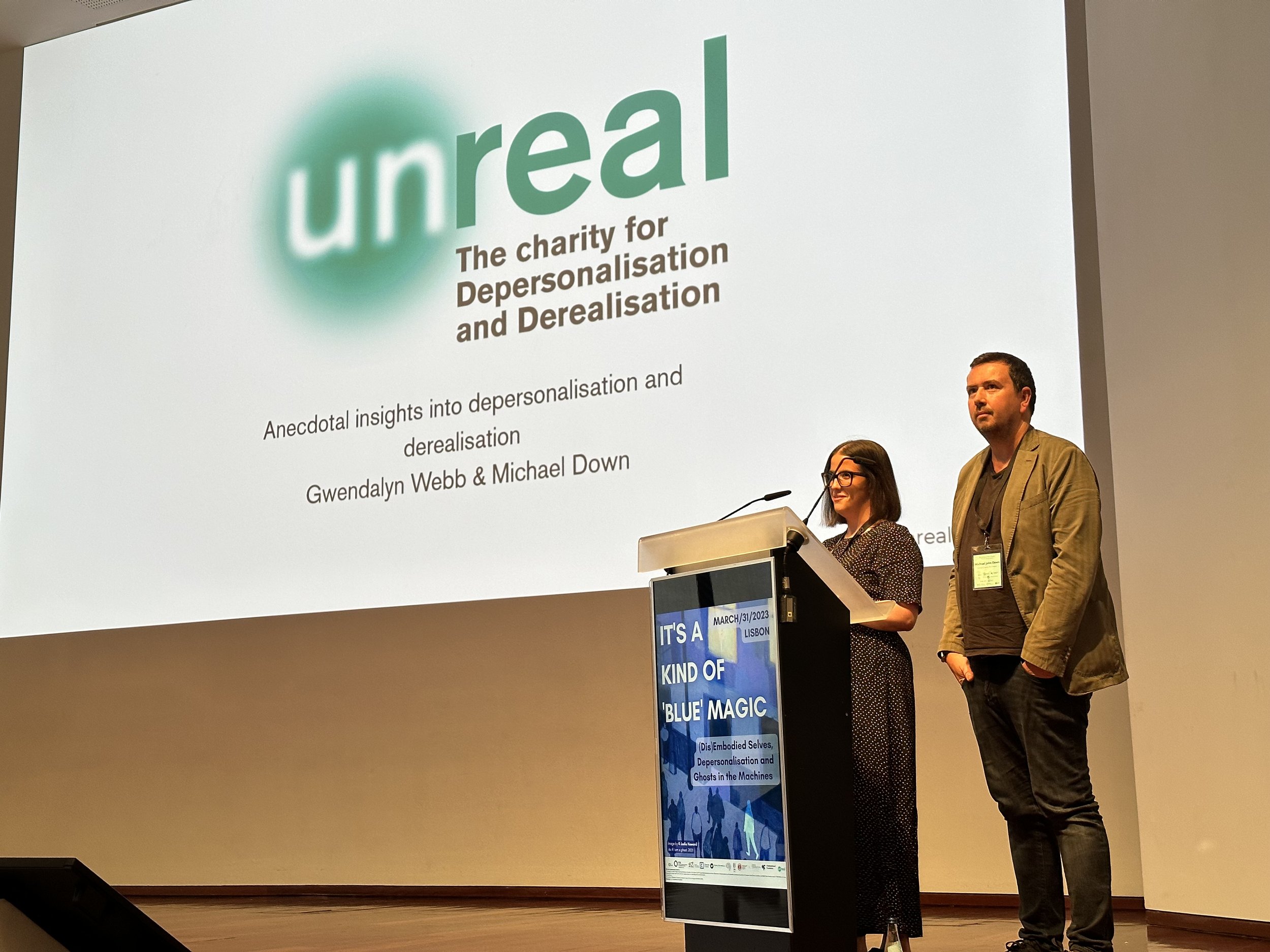2022-23 Annual Round-Up
Published: April 2023
This reporting period was the first in Unreal’s history that was largely free of restrictions from the Covid pandemic, which meant that we have been more able to push forward with objectives that had previously not been able to be moved online.
Our Peer Support programme remained our flagship offering to the community, with the online sessions remaining overwhelmingly popular – we ran 19 sessions during the period, with 299 free tickets used by attendees, all advertised via our 1100+ strong mailing list. We have received regular contact from members of the community expressing how important the sessions are for them (for many, all over the world, they are the only form of DPDR support they can access). The programme did suffer a few minor setbacks, with a couple of volunteer facilitators and our Peer Support lead board member stepping back due to their increasing commitments following the easing of pandemic restrictions. But to counter this, we have been advertising via the Charity Jobs website for new volunteer facilitators – with approximately 12 strong candidates having already submitted applications – and the board has elected a new Peer Support lead to head up the programme. They are currently interviewing the applicants and establishing who will be suitable to join the programme. We have also continued running our internal peer support groups reserved for members of Unreal to look after the wellbeing of our trustees, board members and volunteers, as well as introducing a rolling programme of ‘Check-In Chats’ for everybody involved with the charity to allow new ideas or concerns to be communicated effectively, whilst also monitoring wellbeing and improving pastoral care.
Aligned with our key objective of raising awareness of the condition, another project that the charity has been working on is the production of a DPDR documentary following discussions with the Head of Development of a BBC-linked production house. In November 2022, trustees Michael Down and Joe Perkins spent 15 days travelling around the UK filming interviews with clinicians working in the field and a selection of people of lived experience. This has now been edited into a 6-minute ‘Teaser’ which is currently being used to attract potential interest from broadcasters and/or funders to help us turn it into a feature-length programme or film.
One of the most major events for Unreal during this period was being invited by Dr Anna Ciaunica (CFCUL) to give a presentation about DPDR and our work at a major academic conference in Lisbon in March 2023. Joe Perkins was already booked to speak in a personal capacity, giving his lived-experience perspective on the condition, but after discussions with Dr Ciaunica, Michael Down and (new board member, as of July 2022) Gwendalyn Webb also travelled to Lisbon to formally represent Unreal, and speak about our work as well as showing the documentary teaser - with artist Jodie Howard also travelling to exhibit her Unrealities illustrations. The response from the largely academic audience was strong and invested, and many new connections were made that we hope will lead to similar public speaking opportunities and future charity involvement in studies going forwards.
On this front, Unreal has continued to support academic research being done into the condition. The charity remains a co-applicant on the NIHR-funded feasibility study (being run through UCL and headed by trustee Dr Elaine Hunter), and we regularly meet with other academics and promote their studies through our website. Two such new connections made during this period have been with Dr Emanuele Fino (Nottingham Trent), with us helping to advise & promote his research into DPDR and Social Identity
Theory; and Matt Gwyther (Anglia Ruskin) who ran a collaborative art installation on DPDR at the Cambridge Festival, including an eBook of essays on dissociation that Gwendalyn Webb & Joe Perkins contributed to, and is now being sold in conjunction with Unreal.
Reflecting our growing audience worldwide – largely due to our social media presence and online Peer Support being globally accessible – in October 2022 we took on a new USA-based ambassador: musician Foster. We are hopeful that by having people in different territories formally linked to Unreal and actively using their platforms to promote our work, we can increase our messaging reach significantly. We are also continuing with the previously-planned redevelopment of our website so that we can offer more information in a more accessible format – we now have a web developer involved with us, and a subgroup is liaising with him to structure the new site and consult on its design.
Our online presence remains the primary way in which we communicate with our community. We previously noticed a significant surge in web traffic during Covid, but this period has seen those raised statistics largely maintained despite the easing of restrictions: 15k overall visits, 12k unique visitors, and c.34k page views match the previous period, suggesting that we have been both retaining engagements and remaining at the forefront of DPDR awareness as the condition gains further global interest and awareness. However, our social media scores have continued to increase significantly –using Twitter as an example, Average Impressions of our posts have increased tenfold compared to 2021-22; suggesting further the vital importance of using our social media efficiently and effectively.


